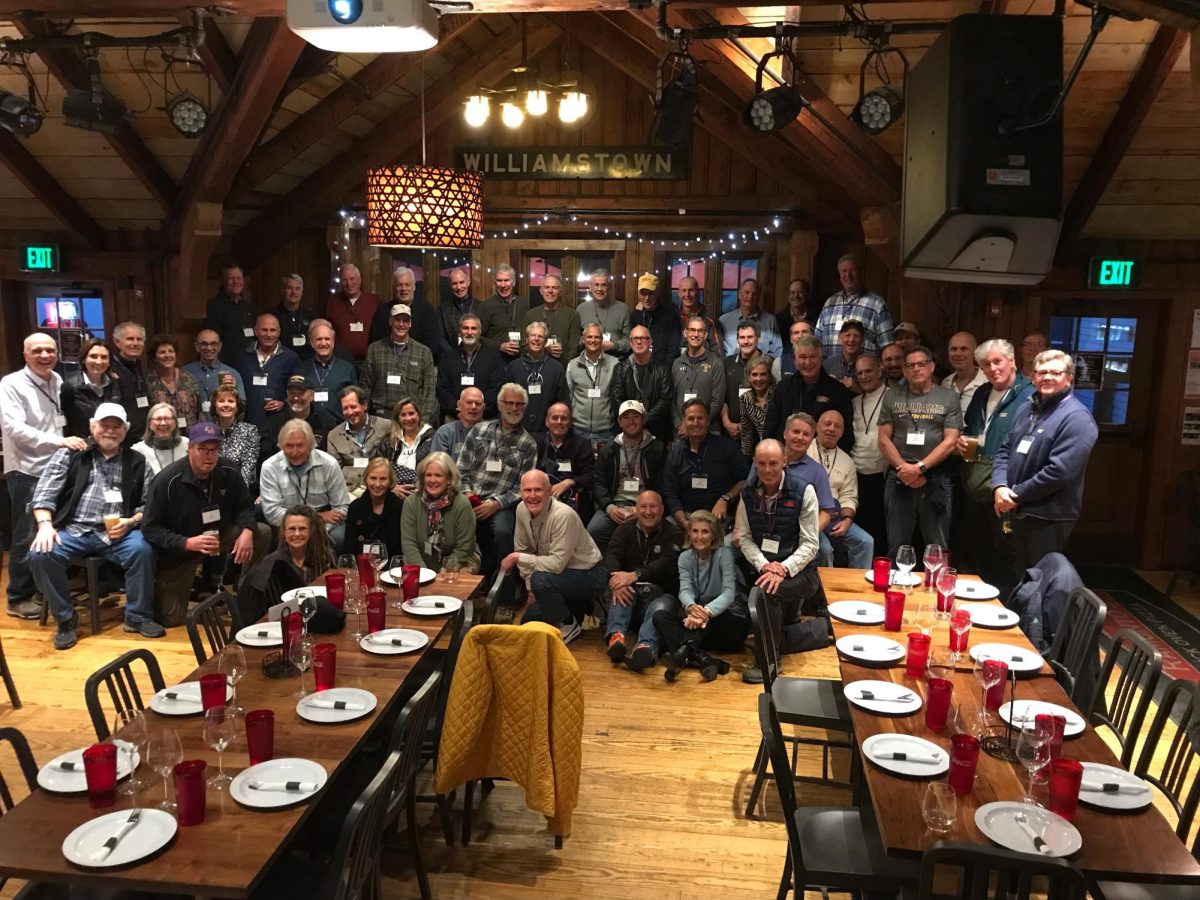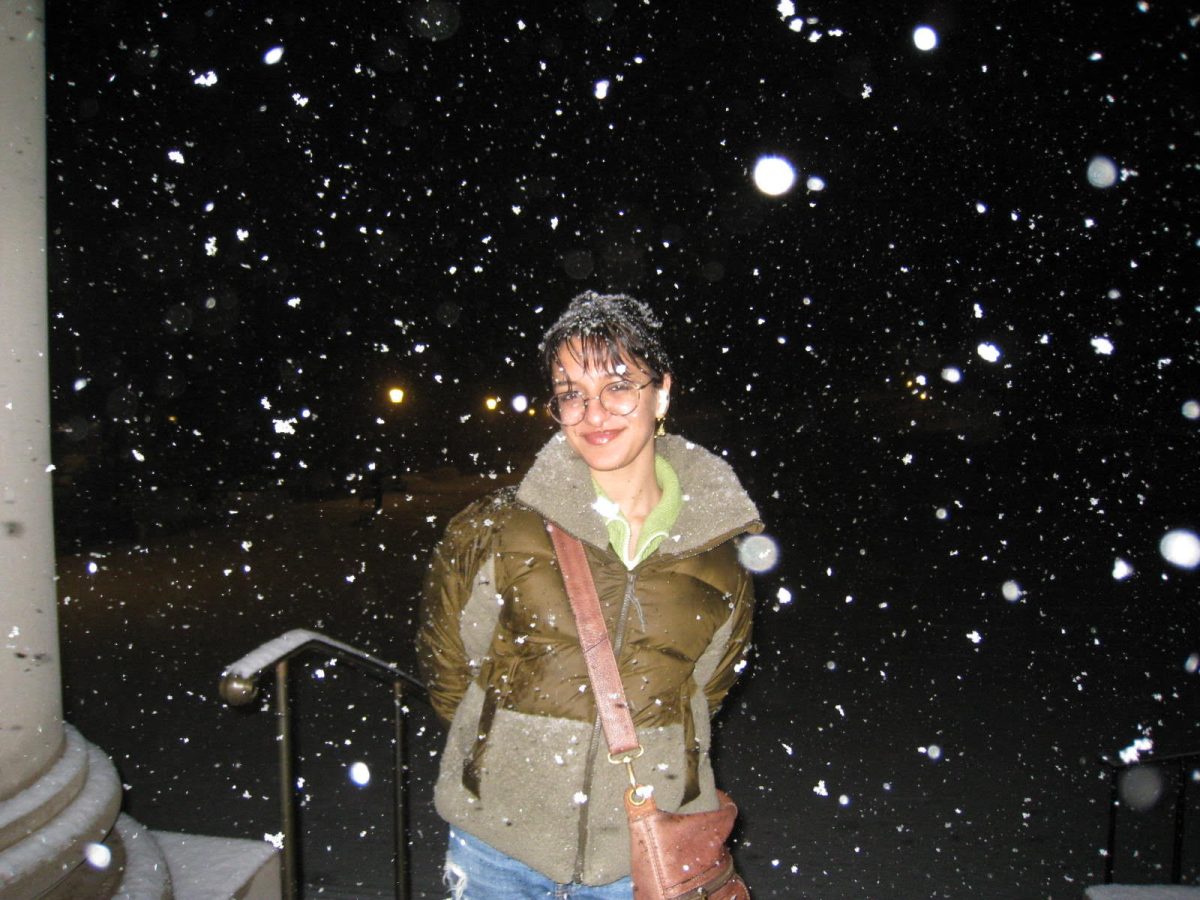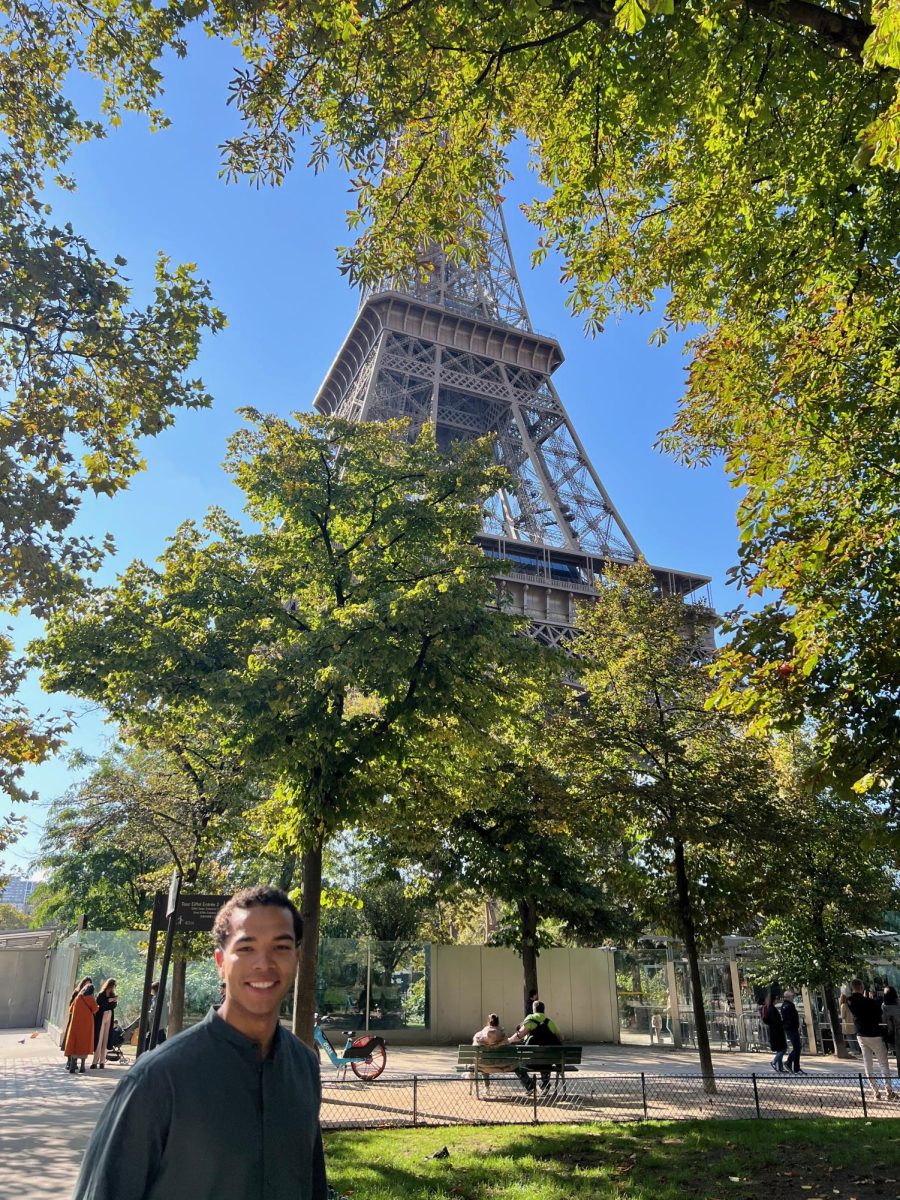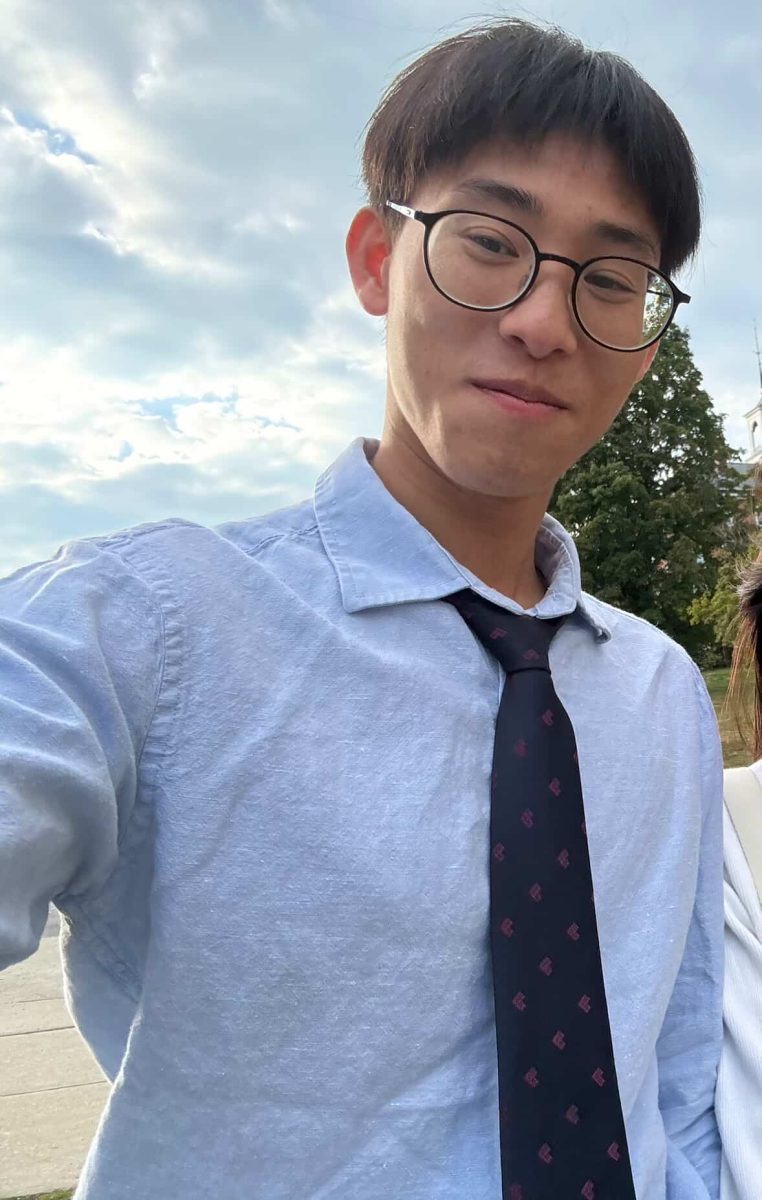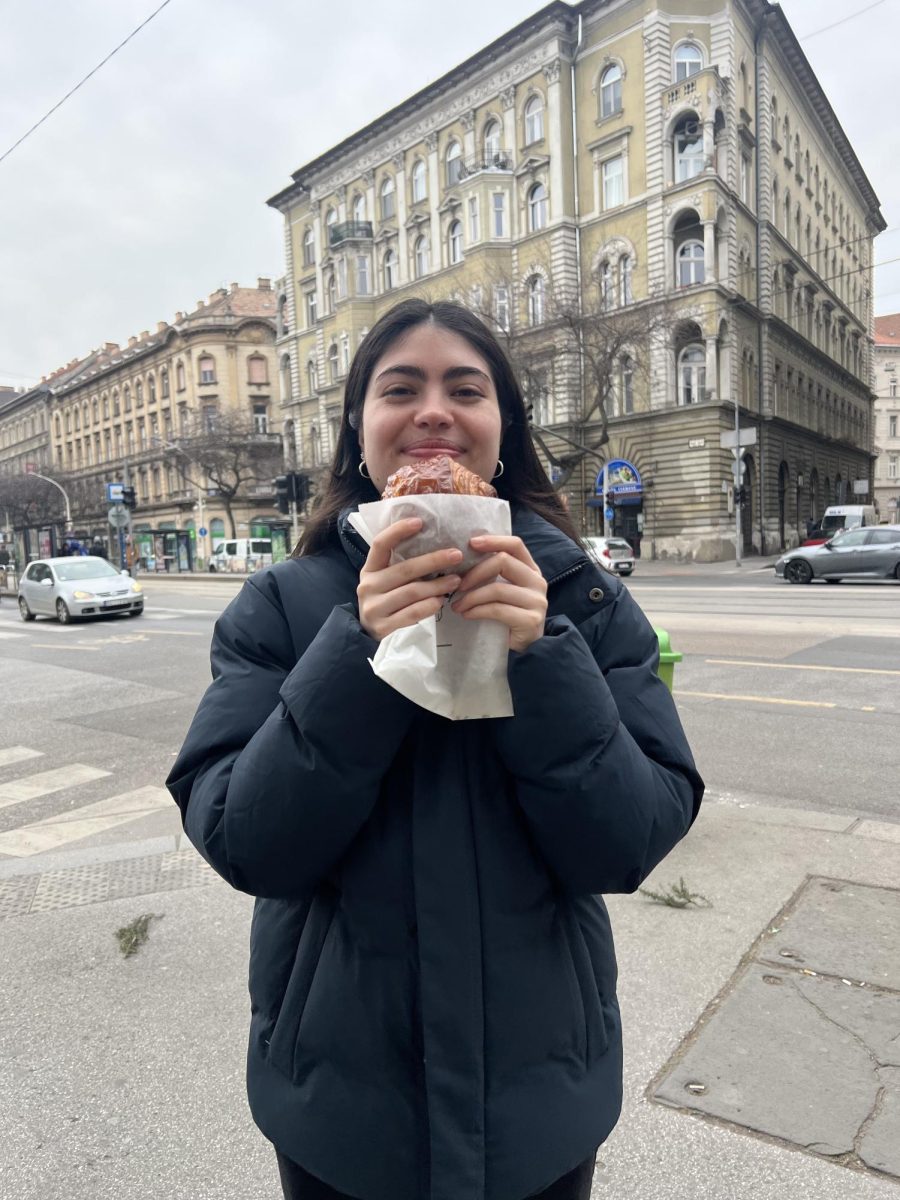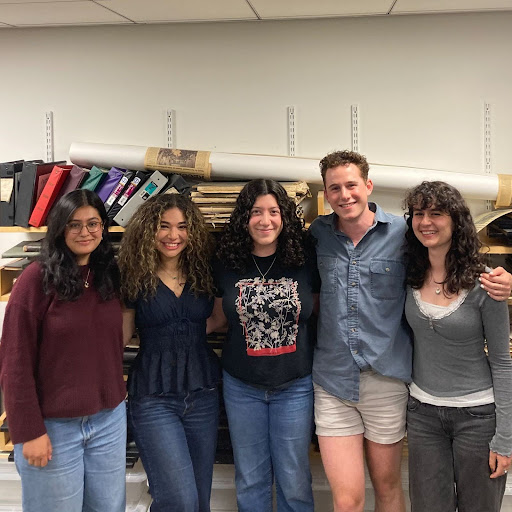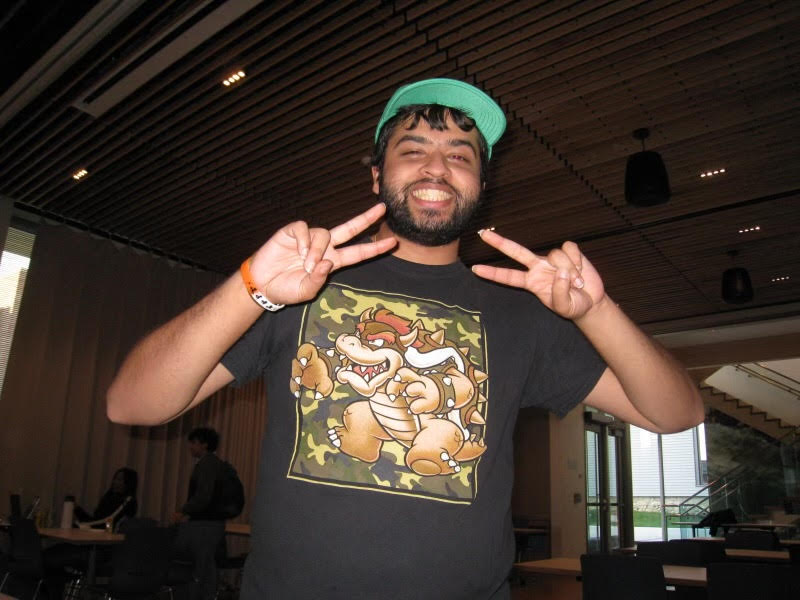
We randomly select unixes from a list of all current students at the College for our weekly One in Two Thousand. So long as the owner of a selected unix is willing to be interviewed and not a member of the Record board, that person becomes the subject of our interview. For this week, the computer (using a very simple script in R) chose Darren Wang ’23.
We’ve met in Professor [of English Stephen] Tifft’s “Great Big Books”class. How do you feel about finally finishing War and Peace?
I actually despised the book until the last, maybe, 300, 200 pages. That’s when it really started to click for me. I don’t know. I guess when we were in the first two thirds of the book, I was kind of just reading for the plot … but after [Tifft’s] whole “Don’t read characters, read concepts” thing, I don’t know — like, the concept of “divine love,” that just clicked with me. Like, wow, this is the moral way to live, to love everyone and everything, and I should try to do that.
Is this your first time taking English classes or Div. I classes?
No, I took an English seminar last semester. It’s called “Robots, Puppets and Dolls” by [Professor of English Shawn] Rosenheim. I love that class, and that’s part of why I decided to take an English seminar this semester. I’m a pretty Div. III person, so it’s just such a nice balance to everything else. So that’s why I chose to take this “Great Big Books”class — I need a humanities thing.
This spring break has been chaotic and eventful, to say the least. Now that school has closed for about two weeks, how is the sudden change in lifestyle treating you?
It’s definitely been lonely to be home. The thing is, even though my family and I are in Taiwan, I actually didn’t go to school here, so unlike a lot of people who went home, I didn’t have friends from high school or even from middle school or any school at all. The only people I know here are my family, and you could really feel the physical barrier of the Pacific Ocean. After being so close with people for most of freshman year, this certainly feels strange. We’re technically still on break, so I’ve had some time to spend time on my interests. I’ve been going out every day for the past week to fish.
Speaking of fishing, are you aware that there’s a Williams Fishing club?
I am! I am aware. I didn’t really join that many clubs at the start of the year, because I didn’t want to become a “sign up and never show up” type of person, so I kind of wanted to see what’s available first and then pinpoint some of the clubs that I wanted to join.
We are a bit more than a week away from going back to school through remote learning — what change is that going to bring to your schedule? Are you excited, slash prepared, for those changes?
Honestly I like this better. It really allows me to schedule out my time better and maybe finish all of my work for a week on, like, Wednesday. [Laughs.] And I’d just have the rest of the week to chill. So, I’m looking forward to that, but there is also the social aspect of being alone, like being stuck looking at a screen and going, “Oh, this is how classes are, huh?”
When you are saying you’d like to finish all your work in one day and “chill” the rest of the week — what do you do to “chill?”
The weather’s pretty nice here, so I just spend a lot of time outdoors. I’ve been fishing, as you know… I also started picking up Japanese yesterday. [Laughs.] And then, of course, I’m going to see how online virtual classes are going to play out, so finishing all the work in one day is not guaranteed, but it’s an ideal. If I do have more time, though, I’d like to spend them outside where it’s closer to nature.
You mentioned that you do calligraphy. Is that something you picked up at Williams or a childhood interest?
The thing is, every Asian kid who grew up around here ends up being forced to learn about calligraphy a little, but just because I was young and I was required to, I never really appreciated the art. I think the thing is, after coming to college and managing my schedule, I end up having more free time, and I wanted to use that time to rediscover it. Now I actually appreciate it, rather than just regarding it as a requirement.
So I have to admit I looked you up on Instagram a bit and discovered that you practice calligraphy on the Record newspaper. While I applaud your dedication to writing these complicated characters down again and again, I have to ask out of curiosity: Why practice on the newspaper?
It’s the texture of the paper. Usually the calligraphy papers are light and water-absorbent; they are much thinner than printer paper. I had some when I came, but when they ran out, the closest thing I could get was this newspaper. You know when you were a kid and your parents don’t want to give you good equipment that you could ruin, you practice on the newspaper because it’s just there for you to use. This is kind of like that.
In a broader sense about your cultural background, you’re in Taiwan; I’m from across the strait. I’m sure calligraphy is one of the ways that connect you with your culture at Williams. What are some other ways?
I had started learning and attempting to practice martial arts, just for the childhood fascination from watching movies.
Was this as part of martial arts club or the Winter Study course on martial arts?
No, this was just me. It’s just me alone trying to figure out things, because from my understanding of what the school offers, they focus on something that’s different from what I’m trying to learn. I think they focus more on using their body, but I’m trying to learn how to use —weapon wouldn’t be a good word for it — let’s call it practice tools. For example, I’m recently trying to learn how to use the three-section staff.
So, while browsing your Instagram page, I noticed that you also work a lot on natural science. I have to say stuff you built — terrarium, right — and hand-made insect specimens look really proper and professional. What initially brought you to the world of natural sciences?
When I was little, I lived on outskirts of Taipei, kind of right where the city ends and the hills start. So I spent a lot of time outdoors as a kid, just observing insects and whatever. It’s just an interest that I maintained since then, I would say. It’s similar to calligraphy in that within the past few years I’ve really started to appreciate the art behind these interests. Of course, gaining the technical skill for building these [terrariums] was a learning process, but I only started because I had a love for it, for nature and all.
When you were talking about the art of calligraphy and the art in nature, what exactly do you think of or value as “art”?
I think the most important thing is about art is that it’s not really about presenting an image that pleases others. From my point of view, I’m very bad at calligraphy, as of now, because I’m just starting. There’s a lot of skills that I’m building, so the things that you see on Instagram might look good to you, but to me they don’t look … great? But it’s really about putting yourself and representing yourself in your art. For example, in calligraphy, everyone starts off by copying the fonts of these great masters of the past, but I didn’t like that, because that’s not me. I felt that if I were going to pursue any form of art, I have to put elements of myself into this art.
So it’s a kind of self-expression, in a way?
Yeah, I would say that, a kind of artistic expression of self.
When you are creating art from calligraphy and nature, what part of yourself are you expressing? What do you want your viewers to feel or to learn from your creations?
I guess the imperfections. The imperfections of being a human, because I’ve always despised the concept of perfection because you know, once you reach perfection, there’s no going beyond and no improvement beyond that point. So I think by expressing yourself through art, at least I think, you realize that nothing will ever be perfect, but by looking at these imperfections you see the future potential. For example, in calligraphy, you could improve the next character you write based upon the observation you make of the previous mistakes. Terrarium — you adjust the soil content, you adjust the acidity. It’s just a visualization of never-ending self-improvement and self-expression at the same time.




